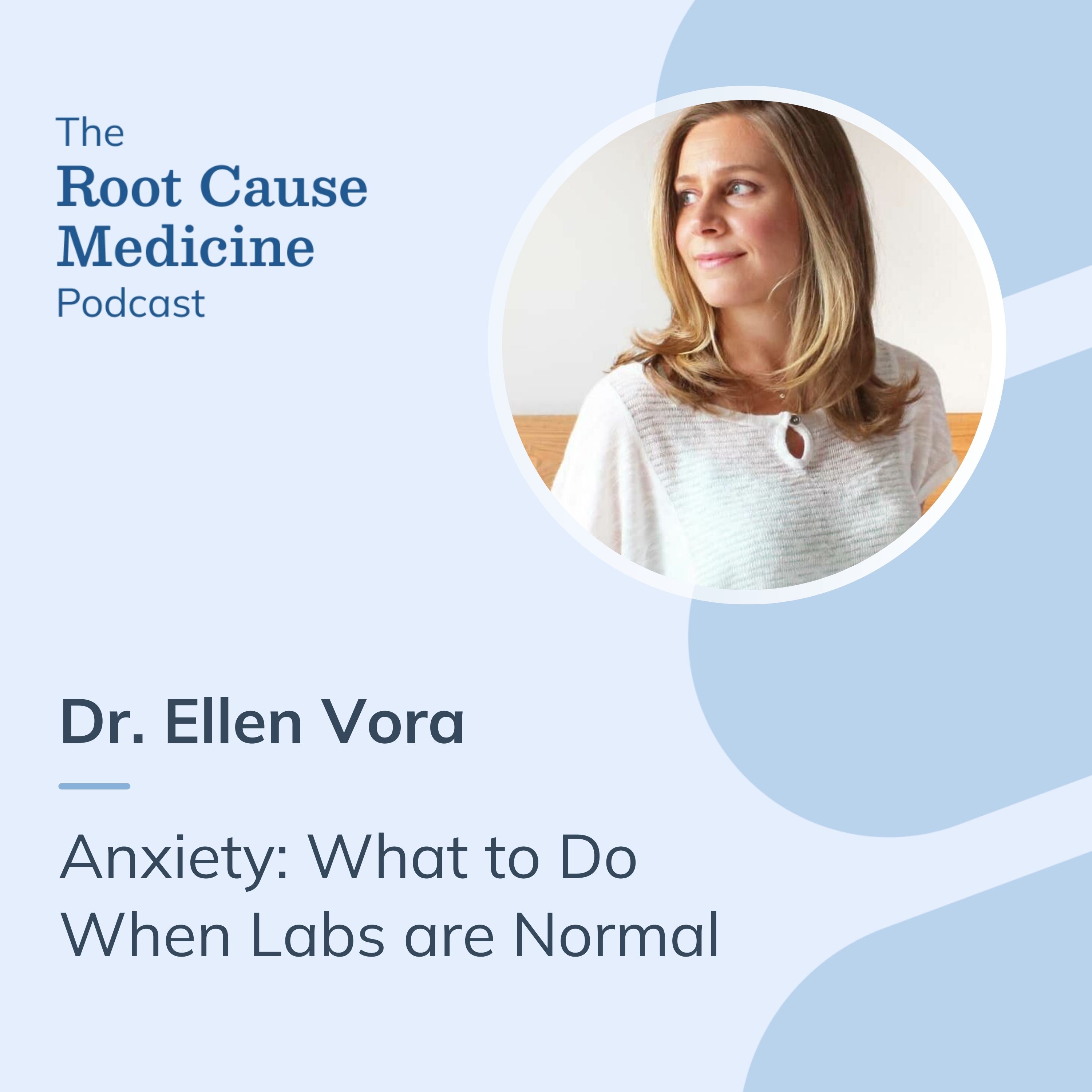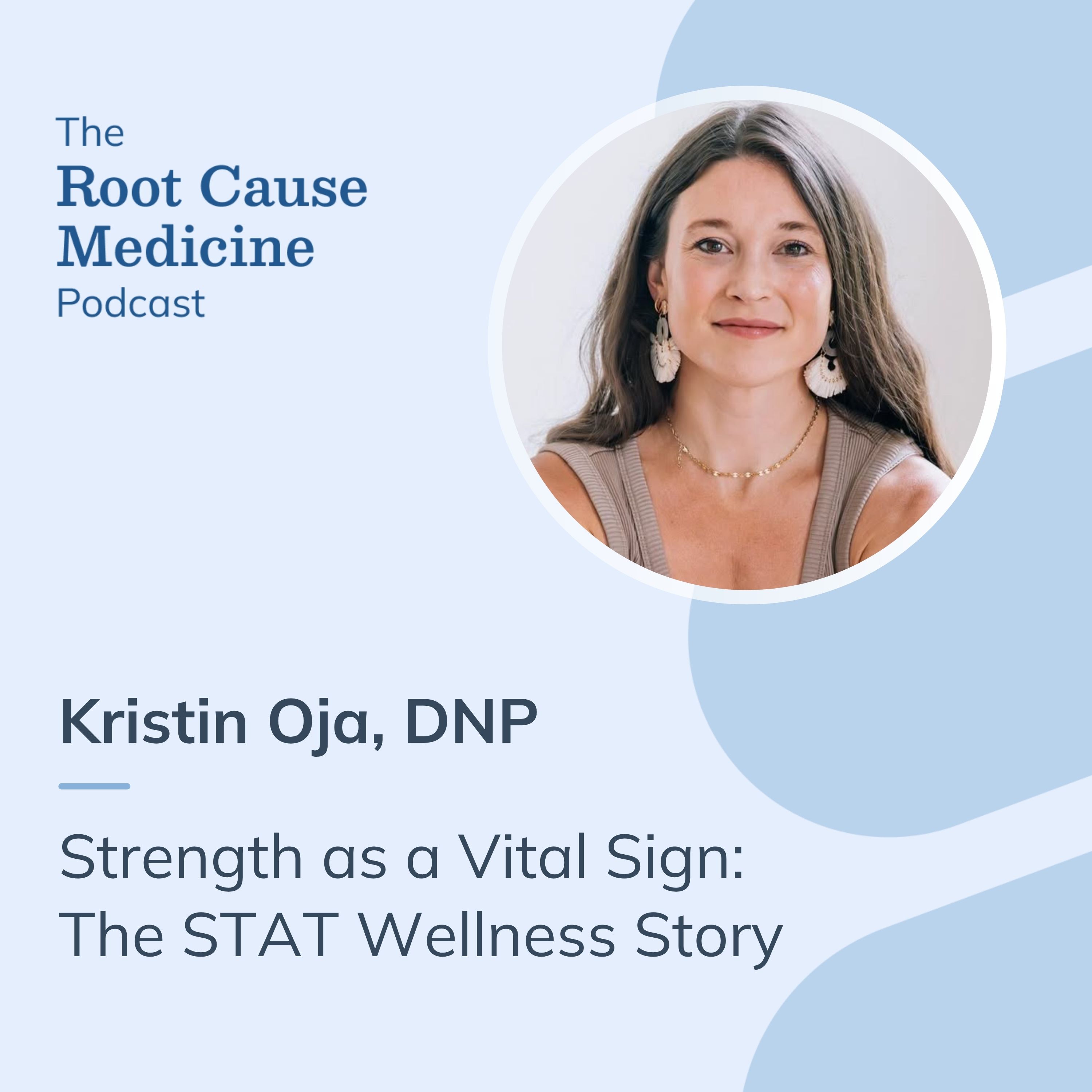Living with hyperthyroidism can be overwhelming as you deal with symptoms like a fast heartbeat, anxiety, and trouble sleeping that often affect daily life. While managing this condition can feel challenging, making simple lifestyle changes around sleep, stress, and exercise may help support your overall well-being. Minor adjustments to your daily routine can make a difference in how you feel every day.
[signup]
The Role of Sleep in Hyperthyroidism Management
Sleep quality plays a crucial role in managing hyperthyroidism and supporting overall health. Addressing sleep issues can help reduce the strain on your body and improve your quality of life.
Impact of Hyperthyroidism on Sleep
Hyperthyroidism can disrupt sleep by speeding up the body's processes. This often leads to sleep disturbances like insomnia, night sweats, and difficulty staying asleep. These disruptions may leave you exhausted and unable to focus, making it harder to cope with symptoms during the day.
Strategies for Improving Sleep Quality
- Establishing a Regular Sleep Schedule: Sticking to a regular sleep routine helps to regulate your internal clock. Going to bed and waking up at the same time daily can promote better sleep over time, making it easier to fall asleep and wake up feeling refreshed.
- Creating a Restful Sleep Environment: A comfortable and quiet bedroom can make a big difference in your sleep quality. Keep the room dark, cool, and free of distractions. Limiting screen time before bed may also help your brain wind down, as blue light from devices can make falling asleep harder.
- Relaxation Techniques Before Bedtime: Incorporating calming activities before bed, like deep breathing, stretching, or meditation, can help relax your mind and body. These simple techniques can ease stress and signal your body that it’s time to sleep.
Managing Insomnia and Sleep Apnea
If sleep issues like insomnia or sleep apnea persist, talk to your doctor. Identifying and addressing these problems can help you find relief and improve your overall sleep quality. Proper management of sleep disorders can enhance your overall well-being while living with hyperthyroidism.
Stress Management Techniques
Managing stress is crucial when living with hyperthyroidism, as stress often makes symptoms worse. Understanding how stress impacts your body and finding ways to reduce it can help you feel more balanced.
Understanding the Connection Between Stress and Hyperthyroidism
Stress and hyperthyroidism are closely linked. When you're stressed, your body releases hormones like cortisol, potentially increasing thyroid activity. This can worsen symptoms like anxiety, rapid heart rate, and irritability. Chronic stress often disrupts sleep and increases fatigue, further straining your body, regardless of whether you have a chronic health condition.
Effective Stress Reduction Strategies
Mindfulness and Meditation: Practicing mindfulness and meditation can help calm your mind and reduce stress. Taking just a few minutes each day to focus on your breathing or being present in the moment may help lower stress levels and improve your overall mood.
Deep Breathing Exercises: Deep breathing exercises are simple yet powerful tools for reducing stress. By slowing your breath and focusing on each inhale and exhale, you invite your body's relaxation response, helping to ease tension and anxiety.
Time Management and Prioritization: Managing your time and setting priorities is a useful approach to reducing feelings of overwhelm. Break tasks into smaller steps, focus on what’s most important, and allow yourself time to rest. This approach can help you feel more in control and less stressed.
If stress overwhelms you, seeking professional help through counseling or therapy may be beneficial. Therapists can offer coping strategies and emotional support tailored to your needs. Cognitive-behavioral therapy (CBT) is one effective approach to managing stress and anxiety related to hyperthyroidism.
Exercise and Physical Activity
Exercise plays an important role in managing hyperthyroidism by helping to mitigate some of its effects on the body. Regular physical activity supports overall well-being and can help improve one's daily mood.
Benefits of Regular Exercise
Regular exercise offers several benefits for those with hyperthyroidism. It can improve mood by boosting feel-good hormones like endorphins, reduce fatigue by enhancing energy levels, and help maintain muscle mass, which may be affected by the condition. Staying active can also promote better sleep and reduce stress.
Types of Suitable Exercises
- Aerobic activities: Low-impact exercises like walking, swimming, or cycling improve cardiovascular health and reduce stress.
- Strength training: Light weight lifting or resistance exercises can help maintain muscle mass, which may decline with hyperthyroidism.
- Flexibility and balance exercises: Practices like yoga and tai chi promote relaxation, improve balance, and increase flexibility, which can be beneficial for stress management and overall wellness.
Exercise Precautions for Hyperthyroidism Patients
Hyperthyroidism may cause symptoms like a fast heartbeat or fatigue, so it’s important not to overexert yourself. Pay attention to your body’s signals—if you feel dizzy, overly tired, or have trouble breathing, it's okay to slow down or take a break. Starting slow and gradually increasing intensity is a safe way to stay active.
Energy Conservation Techniques
Managing hyperthyroidism can sometimes feel exhausting, especially when trying to balance daily responsibilities. Simple strategies help make daily tasks more manageable and reduce fatigue.
Pacing Daily Activities
Finding a balance between activity and rest is key when dealing with hyperthyroidism. Breaking tasks into smaller steps and taking regular breaks throughout the day can help you conserve energy, preventing burnout. Resting between activities helps your body recover, allowing you to complete more without feeling overly tired.
Prioritizing Tasks
It’s helpful to focus on the most critical tasks first. Prioritizing essential activities and letting go of non-urgent ones helps to reduce stress and prevent exhaustion. Making a to-do list or planning your day allows you to organize tasks based on energy levels and what’s most important.
Using Assistive Devices
Using assistive devices, such as ergonomic tools, wheeled carts, or lightweight equipment, can make daily tasks less physically demanding. These devices help by minimizing the strain on your body, making it easier to complete chores and activities when managing hyperthyroidism-related fatigue.
Cognitive Behavioral Strategies
Managing stress is essential for those with hyperthyroidism, as it can worsen symptoms. You can support your emotional health by addressing negative thoughts and building coping skills.
Challenging Negative Thoughts
Hyperthyroidism may heighten feelings of anxiety or frustration, which can lead to unhelpful thinking patterns. The first step is to recognize when your thoughts become overly pessimistic. Once identified, try to reframe these thoughts in a more positive or realistic light. For example, instead of thinking, "I'll never feel better," shift to, "I'm working on ways to improve my health every day."
Developing Coping Skills
Developing coping skills helps you manage stress and emotions more effectively. Techniques like deep breathing, journaling, and mindfulness can build resilience and support you in handling life's challenges with calm. These practices can also improve emotional regulation, making it easier to deal with the challenges that come with hyperthyroidism.
Social Support and Relationships
Building a strong support system can make managing any chronic health condition easier, both emotionally and physically. Family, friends, and community connections play a key role in helping you navigate the ups and downs of your health.
Importance of a Support Network
Having a reliable support network, including family, friends, and support groups, can make a big difference in managing hyperthyroidism. Loved ones can offer emotional comfort, assist with daily tasks, and help you feel less isolated. Support groups provide a space to connect with others going through similar experiences, offering a sense of understanding and encouragement.
Communicating Needs and Boundaries
Effective communication is essential when living with a chronic condition. It’s important to clearly express your needs and set boundaries with those around you. Let others know when you need rest or support, and don’t hesitate to ask for help when needed. Open, honest communication can strengthen relationships and reduce misunderstandings.
Engaging in Community Activities
Staying active in your community helps you stay connected and maintain a sense of normalcy. Joining local activities, attending events, or even volunteering allows you to stay engaged and feel a sense of belonging. Being part of a community can also provide emotional support and improve your overall mental and physical health.
Mind-Body Practices
Incorporating mind-body practices can help manage the stress and anxiety often linked with hyperthyroidism. Yoga, meditation, and other relaxation techniques offer gentle ways to support your overall health.
Yoga and Meditation
Yoga and meditation are excellent tools for promoting relaxation and reducing stress. Yoga combines gentle movement with deep breathing, which can help calm the nervous system and improve sleep. Meditation helps clear the mind, ease anxious thoughts, and allow for a sense of peace, which may help manage symptoms over time.
Tai Chi and Qigong
Tai Chi and Qigong are ancient practices that blend slow, flowing movements with focused breathing. These activities enhance balance, strengthen muscles, and improve mental clarity. Regular practice can help reduce stress, increase flexibility, and promote a greater sense of well-being.
Progressive Muscle Relaxation
Progressive muscle relaxation (PMR) involves tensing and relaxing different muscle groups to reduce physical tension. Starting at your toes and working up to your head, PMR helps release built-up stress in the body and can be especially helpful before bedtime, improving sleep quality.
Managing Daily Routines
Establishing a consistent routine can help manage the daily challenges of hyperthyroidism. Stability, healthy habits, and flexibility are central to supporting your well-being.
Establishing Consistent Routines
Having a steady daily routine provides stability and predictability, which can reduce stress and help manage symptoms. Simple tasks like waking up at the same time and planning your day help to create a sense of control.
Incorporating Healthy Habits
Healthy habits like regular meal times, gentle exercise, and relaxation techniques can improve energy levels and support overall health. These habits keep your body balanced and promote a calmer, healthier lifestyle.
Adapting Routines During Flare-Ups
When symptoms worsen, it's important to be flexible. Adjust your routine to include more rest and reduce strenuous activities. Listening to your body and adapting as needed can help you manage flare-ups more comfortably.
Avoiding Triggers and Environmental Factors
Recognizing the factors that worsen your symptoms, such as certain foods, stress, or lack of sleep, can help you avoid flare-ups. Keeping track of what affects you personally allows for better symptom management and long-term wellness.
Minimizing exposure to stressors, environmental irritants, and overly stimulating situations can help create a calming atmosphere. Simple changes, like reducing noise, limiting screen time, and surrounding yourself with supportive people, promote a more thyroid-friendly environment.
Technology and Tools for Lifestyle Management
Technology can be a helpful tool in managing hyperthyroidism by tracking important aspects like sleep, stress, and physical activity. Apps can offer guidance and support for staying healthy and balanced.
Using Apps for Sleep and Stress Tracking
There are many apps available to monitor your sleep patterns and stress levels. These tools help you identify disruptions in your routine and offer suggestions for improving your rest and managing stress more effectively.
Fitness Trackers and Exercise Apps
Fitness trackers and exercise apps encourage staying active by setting goals, tracking progress, and reminding users to move regularly. Regular physical activity supports physical and mental well-being.
Mindfulness and Meditation Apps
Mindfulness and meditation apps offer guided relaxation exercises that promote mental clarity and reduce stress. Using these apps regularly can help you manage anxiety, calm your mind, and improve overall emotional balance.
Professional Guidance and Resources
Managing hyperthyroidism is easier with the right support and resources. Building a healthcare team and accessing helpful tools can make a big difference in your journey.
Working with Healthcare Providers
Collaborating with healthcare providers like doctors, therapists, and dietitians ensures you receive well-rounded care. These experts can guide you in managing symptoms, adjusting your lifestyle, and making informed decisions about your health.
Accessing Support Groups
Joining support groups allows you to connect with others who are also managing hyperthyroidism. Sharing experiences, advice, and encouragement may provide emotional support and remind you that you’re not alone in your journey.
Educational Resources
Many educational resources, such as books, websites, and workshops, offer valuable insights into managing hyperthyroidism. These tools help you better understand your condition and learn practical lifestyle strategies.
Personalizing Lifestyle Changes
Managing hyperthyroidism effectively involves personalizing your approach to fit your unique needs. Setting clear goals and regularly assessing your progress can help you stay on track.
Assessing Individual Needs and Preferences
Tailoring lifestyle changes to fit your personal preferences and daily routine makes them easier to maintain. Focusing on what works best for you, whether it's specific exercise routines or relaxation techniques, increases your chances of success.
Setting Realistic Goals
When making lifestyle changes, it's important to set realistic and achievable goals. Start small with measurable objectives, like incorporating short daily walks or improving your sleep habits, and build from there.
Monitoring Progress and Adjusting Plans
Regularly reviewing your progress helps determine what's working and what needs to change. By staying flexible and making necessary adjustments, you can continue to move forward and improve your overall well-being.
[signup]
Key Takeaways
- Lifestyle changes, such as improving sleep, managing stress, and incorporating regular physical activity, can support managing hyperthyroidism.
- Establishing a consistent sleep routine, creating a calming environment, and using relaxation techniques help to improve sleep quality, which is often disrupted by hyperthyroidism.
- Reducing stress through mindfulness, deep breathing, and time management can help manage symptoms, as stress can exacerbate hyperthyroid effects like anxiety and a rapid heart rate.
- Regular low-impact exercise, like walking or yoga, can boost mood, maintain muscle mass, and improve sleep, but patients should avoid overexertion to prevent worsening symptoms.
- Building a strong support system, staying engaged in community activities, and using technology for tracking health metrics can help individuals manage the daily challenges of hyperthyroidism.









.jpg)


%201.svg)








.png)